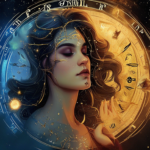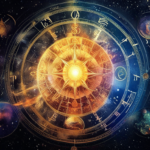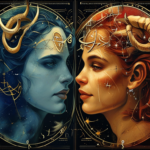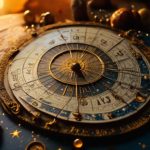Vedic versus Western Astrology: What You Need to Know
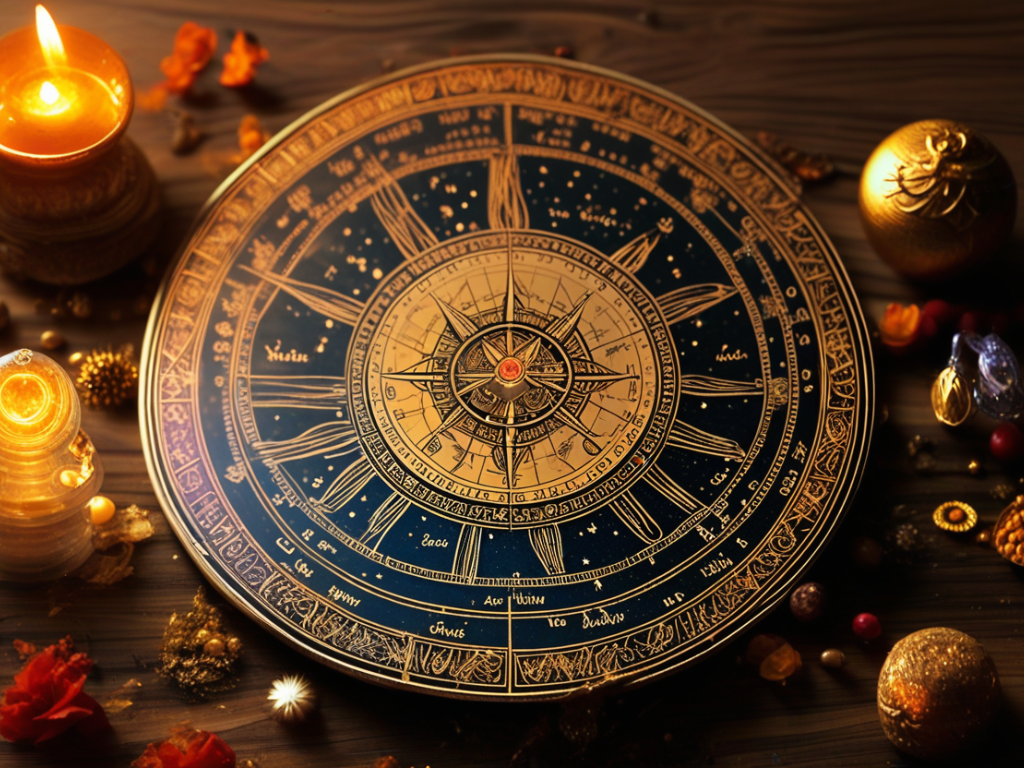
Differences as vast as the night sky and as intimate as our personal journey of self-discovery set apart two ancient paths to understanding the cosmos and our place within it – Vedic Astrology and Western Astrology. Have you ever felt drawn to the mystical world of astrology, captivated by the constellation of stars or stimulated by the whispers of celestial bodies? If your answer is yes, then undoubtedly, you have questions as to which system to turn to for guidance, knowledge or perhaps solace.
Imagine being in a lush, verdant forest; intricately intertwined trees rich with wisdom stand on either side. On your left is the path of Vedic Astrology, on your right is the way of Western Astrology. Both paths lead you spirally upwards, helping you get closer to your higher self, to your divine purpose, abetted by the cosmic cues we call astrology.
Vedic Astrology, or Jyotish, meaning the “Science of Light,” travels to us from the spiritual heartland of India. It is deeply rooted in Vedas, Hindu’s ancient religious texts that encode the cosmic truth. It respects the fixed zodiac and proposes that our karmic past influences our current life’s journey. Its calculations are based on the Sidereal Zodiac, wherein the fixed positions of planets and stars considered.
On the other hand, Western Astrology, firmly grounded in the Hellenistic culture, uses the Tropical Zodiac system. It describes the positions of celestial bodies at the time of birth, with the earth’s rotation determining their placement. It’s not tethered to fixed stars; it instead takes the dynamic Equinoxes as its reference point. Western astrology is more personality-centered, revolving around psychological patterns and behaviors.
Take a moment, close your eyes, and visualize both paths. Appreciate the rich tapestry of knowledge, wisdom, and understanding both offer. However, understand their essence is different, as different as the Earth and Sky, yet harmoniously connected in the grand cosmic ballet.
Vedic Astrology is deeply spiritual, guiding us to evolve through experiences, helping lift the veil of Maya – the physical illusion we confuse for reality. It’s more predictive, its core message is, ‘you’re an eternal soul on a cosmic journey’. Vedic astrology focuses on our Dharma (life’s purpose), Karma (our actions and their consequences) and Moksha (our ultimate spiritual liberation).
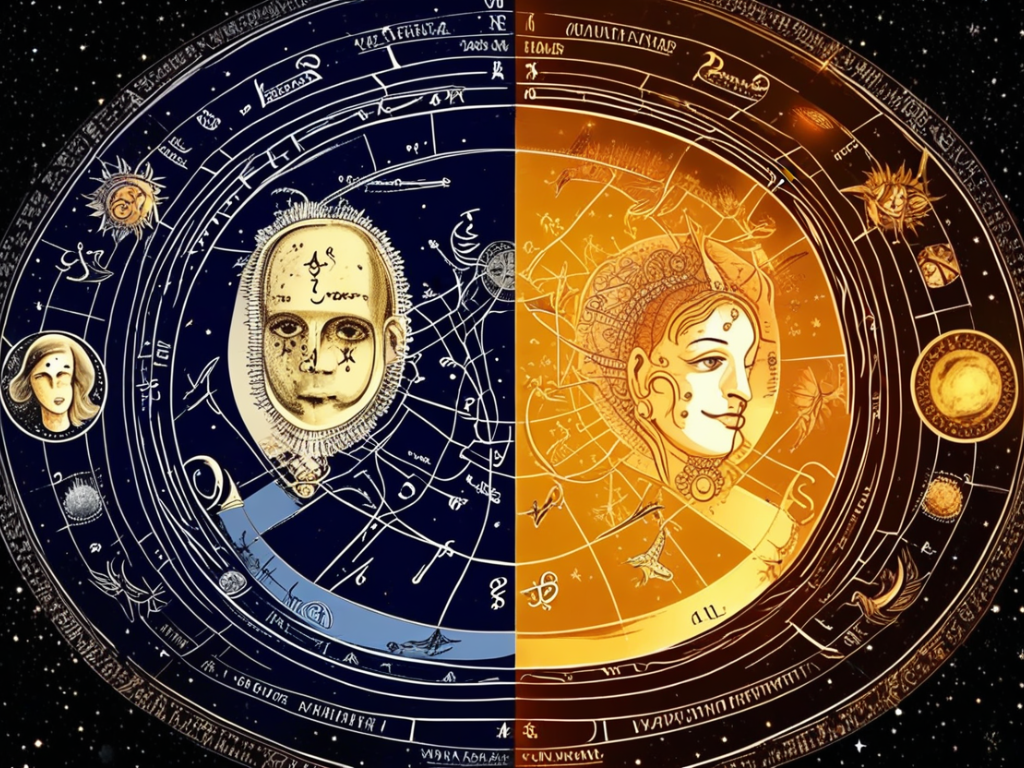
Like a delicate whispering in the silent hours of the night, Vedic astrology gently encourages us to introspect, face our shadows, comprehend our karmas and thus, tread the path towards spiritual enlightenment. Its system uses dashas (planetary periods) and transits to timeline life-events and human experiences, providing us precise insights about our existential journey.
Turn your gaze to the path of Western Astrology. Notice the lush flora of individuality, self-expression, personal growth. Unlike Vedic astrology, it doesn’t concern itself extensively with past lives or destiny. Instead, it provides affirming, empowering insights into our character, behavioral traits, life patterns, potential compatibility with others, and personal growth opportunities.
Think of Western Astrology as a warm friend who knows you profoundly, aware of your strengths, weaknesses, fears and dreams. It urges you to boldly embrace your individuality, understand your persona and leverage that awareness in your journey forward.
The Houses in Western Astrology, just twelve in count but vast in their implications, play a pivotal role. They form the stage upon which your life’s drama unfolds. Each of them, like intimate chambers of your existence, reflects a unique aspect of life, such as career, love, wealth, and health.
Allow yourself the freedom to embrace both paths. Just as it’s impossible to gaze upon the night sky and isolate one star as the most significant, the essence of astrology cannot be reduced to just one perspective.
Vedic and Western Astrology, each eminent in their own rights, offer cordial hands to those seeking meaning, answers or guidance. They are never in competition but rather exist in harmony, enhancing the comprehensive understanding of our place amidst the cosmic dance.
I urge you to embrace them as companions on your journey of self-discovery. They may provide different landscapes of wisdom, but the destination is universal – to deepen our connection with ourselves and the cosmos, to align our lives with the cosmic will, and above all, to illuminate our inner sky. Remember, your adventure in the cosmos is as unending as the universe itself. Be it Vedic or Western Astrology, let them be your star-lit pathways to self-awareness and spiritual growth.

